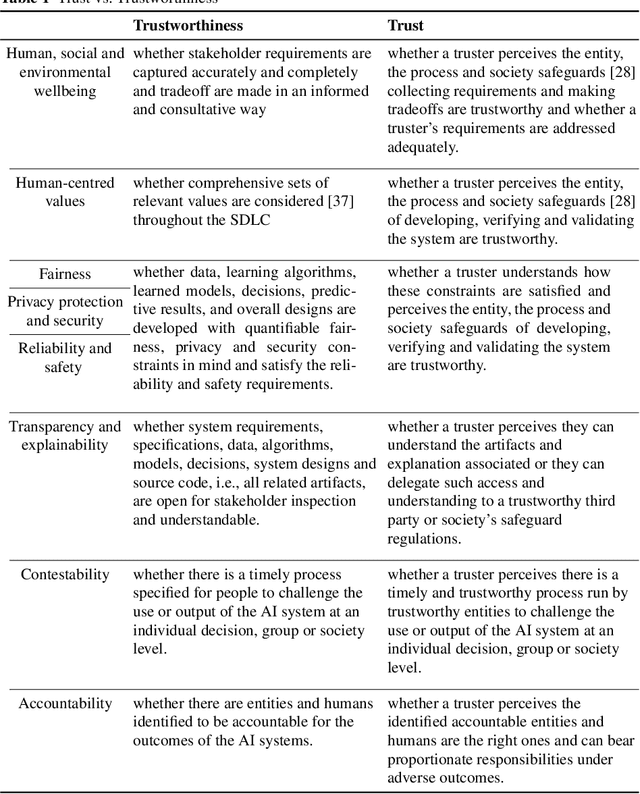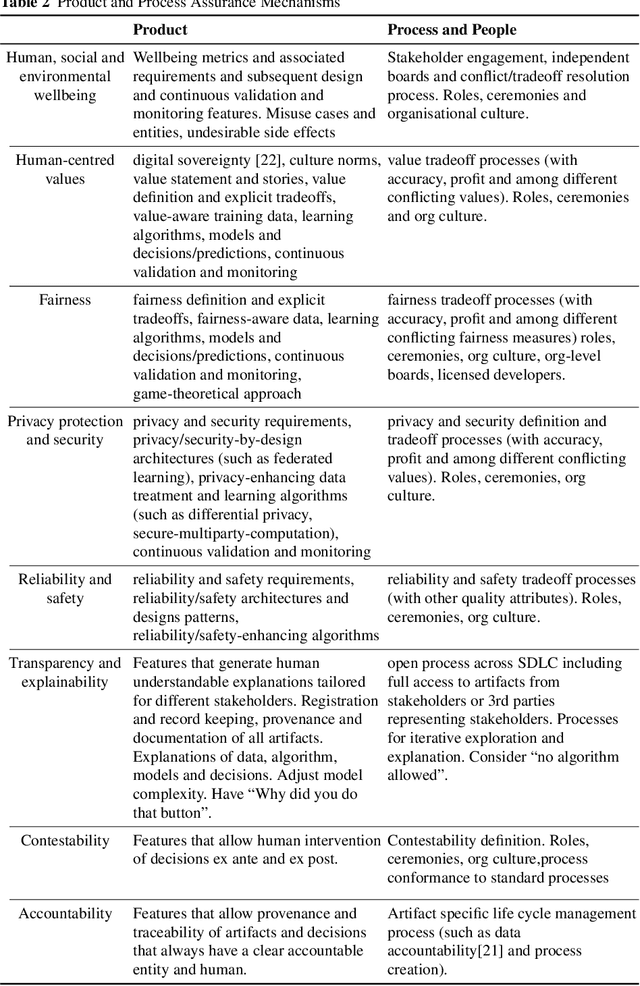Guido Governatori
Data61, CSIRO
ChatGPT Unveils Its Limits: Principles of Law Deliver Checkmate
Oct 22, 2025Abstract:This study examines the performance of ChatGPT with an experiment in the legal domain. We compare the outcome with it a baseline using regular expressions (Regex), rather than focusing solely on the assessment against human performance. The study reveals that even if ChatGPT has access to the necessary knowledge and competencies, it is unable to assemble them, reason through, in a way that leads to an exhaustive result. This unveils a major limitation of ChatGPT. Intelligence encompasses the ability to break down complex issues and address them according to multiple required competencies, providing a unified and comprehensive solution. In the legal domain, one of the most crucial tasks is reading legal decisions and extracting key passages condensed from principles of law (PoLs), which are then incorporated into subsequent rulings by judges or defense documents by lawyers. In performing this task, artificial intelligence lacks an all-encompassing understanding and reasoning, which makes it inherently limited. Genuine intelligence, remains a uniquely human trait, at least in this particular field.
From Legal Texts to Defeasible Deontic Logic via LLMs: A Study in Automated Semantic Analysis
Jun 10, 2025Abstract:We present a novel approach to the automated semantic analysis of legal texts using large language models (LLMs), targeting their transformation into formal representations in Defeasible Deontic Logic (DDL). We propose a structured pipeline that segments complex normative language into atomic snippets, extracts deontic rules, and evaluates them for syntactic and semantic coherence. Our methodology is evaluated across various LLM configurations, including prompt engineering strategies, fine-tuned models, and multi-stage pipelines, focusing on legal norms from the Australian Telecommunications Consumer Protections Code. Empirical results demonstrate promising alignment between machine-generated and expert-crafted formalizations, showing that LLMs - particularly when prompted effectively - can significantly contribute to scalable legal informatics.
Judicial Permission
Jun 05, 2025Abstract:This paper examines the significance of weak permissions in criminal trials (\emph{judicial permission}). It introduces a dialogue game model to systematically address judicial permissions, considering different standards of proof and argumentation semantics.
Explainability by design: an experimental analysis of the legal coding process
May 03, 2025Abstract:Behind a set of rules in Deontic Defeasible Logic, there is a mapping process of normative background fragments. This process goes from text to rules and implicitly encompasses an explanation of the coded fragments. In this paper we deliver a methodology for \textit{legal coding} that starts with a fragment and goes onto a set of Deontic Defeasible Logic rules, involving a set of \textit{scenarios} to test the correctness of the coded fragments. The methodology is illustrated by the coding process of an example text. We then show the results of a series of experiments conducted with humans encoding a variety of normative backgrounds and corresponding cases in which we have measured the efforts made in the coding process, as related to some measurable features. To process these examples, a recently developed technology, Houdini, that allows reasoning in Deontic Defeasible Logic, has been employed. Finally we provide a technique to forecast time required in coding, that depends on factors such as knowledge of the legal domain, knowledge of the coding processes, length of the text, and a measure of \textit{depth} that refers to the length of the paths of legal references.
Weak Permission is not Well-Founded, Grounded and Stable
Nov 15, 2024Abstract:We consider the notion of weak permission as the failure to conclude that the opposite obligation. We investigate the issue from the point of non-monotonic reasoning, specifically logic programming and structured argumentation, and we show that it is not possible to capture weak permission in the presence of deontic conflicts under the well-founded, grounded and (sceptical) stable semantics.
Stable Normative Explanations: From Argumentation to Deontic Logic
Jul 11, 2023Abstract:This paper examines how a notion of stable explanation developed elsewhere in Defeasible Logic can be expressed in the context of formal argumentation. With this done, we discuss the deontic meaning of this reconstruction and show how to build from argumentation neighborhood structures for deontic logic where this notion of explanation can be characterised. Some direct complexity results are offered.
Deontic Meta-Rules
Sep 23, 2022Abstract:The use of meta-rules in logic, i.e., rules whose content includes other rules, has recently gained attention in the setting of non-monotonic reasoning: a first logical formalisation and efficient algorithms to compute the (meta)-extensions of such theories were proposed in Olivieri et al (2021) This work extends such a logical framework by considering the deontic aspect. The resulting logic will not just be able to model policies but also tackle well-known aspects that occur in numerous legal systems. The use of Defeasible Logic (DL) to model meta-rules in the application area we just alluded to has been investigated. Within this line of research, the study mentioned above was not focusing on the general computational properties of meta-rules. This study fills this gap with two major contributions. First, we introduce and formalise two variants of Defeasible Deontic Logic with Meta-Rules to represent (1) defeasible meta-theories with deontic modalities, and (2) two different types of conflicts among rules: Simple Conflict Defeasible Deontic Logic, and Cautious Conflict Defeasible Deontic Logic. Second, we advance efficient algorithms to compute the extensions for both variants.
Avoiding Pragmatic Oddity: A Bottom-up Defeasible Deontic Logic
Sep 09, 2022Abstract:This paper presents an extension of Defeasible Deontic Logic to deal with the Pragmatic Oddity problem. The logic applies three general principles: (1) the Pragmatic Oddity problem must be solved within a general logical treatment of CTD reasoning; (2) non-monotonic methods must be adopted to handle CTD reasoning; (3) logical models of CTD reasoning must be computationally feasible and, if possible, efficient. The proposed extension of Defeasible Deontic Logic elaborates a preliminary version of the model proposed by Governatori and Rotolo (2019). The previous solution was based on particular characteristics of the (constructive, top-down) proof theory of the logic. However, that method introduces some degree of non-determinism. To avoid the problem, we provide a bottom-up characterisation of the logic. The new characterisation offers insights for the efficient implementation of the logic and allows us to establish the computational complexity of the problem.
Semi-automated checking for regulatory compliance in e-Health
Oct 14, 2021
Abstract:One of the main issues of every business process is to be compliant with legal rules. This work presents a methodology to check in a semi-automated way the regulatory compliance of a business process. We analyse an e-Health hospital service in particular: the Hospital at Home (HaH) service. The paper shows, at first, the analysis of the hospital business using the Business Process Management and Notation (BPMN) standard language, then, the formalization in Defeasible Deontic Logic (DDL) of some rules of the European General Data Protection Regulation (GDPR). The aim is to show how to combine a set of tasks of a business with a set of rules to be compliant with, using a tool.
AI and Ethics -- Operationalising Responsible AI
May 19, 2021


Abstract:In the last few years, AI continues demonstrating its positive impact on society while sometimes with ethically questionable consequences. Building and maintaining public trust in AI has been identified as the key to successful and sustainable innovation. This chapter discusses the challenges related to operationalizing ethical AI principles and presents an integrated view that covers high-level ethical AI principles, the general notion of trust/trustworthiness, and product/process support in the context of responsible AI, which helps improve both trust and trustworthiness of AI for a wider set of stakeholders.
 Add to Chrome
Add to Chrome Add to Firefox
Add to Firefox Add to Edge
Add to Edge